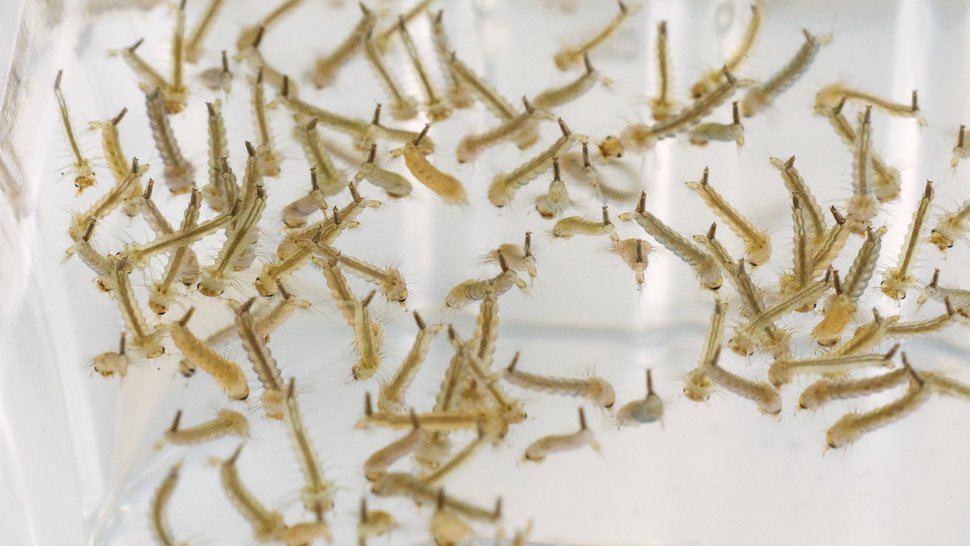Success in the 2025 Leibniz Competition
BNITM scientists receive funding to research the climate resilience of mosquitoes
Half a million euros over the next three years to study how climate change affects the mating behaviour of mosquitoes: the Vector Control working group led by Dr Renke Lühken has won a grant from the Leibniz Association's Senate. The aim of their project, 'Climate resilience of mosquito mating', is to find out how climate change affects the spread of mosquitoes and to develop new tools for mosquito control.

Those who can hear well, love – and increase their chances of reproducing: male mosquitoes follow the sound of the female's wing beats to find her and mate with her. But what happens when temperatures change due to climate change? Does this disrupt the acoustic communication of mosquitoes seeking to mate and thus their reproduction and distribution? And can mosquito males be caught using acoustic traps?
All this will be investigated in the project ‘Climate resilience of mosquito mating’. The main focus is on important carriers of pathogens such as the tiger mosquito (Aedes albopictus) or Anopheles stephensi. They are considered to be carriers of many pathogens and are increasingly spreading in Europe and Africa due to climate change.
The research team led by Dr Renke Lühken is planning both laboratory studies and field research in various regions in Germany, Ghana and Brazil. In the laboratories of the BNITM and the Carl von Ossietzky University Oldenburg (Sensory Physiology and Behaviour, Prof. Dr Jörg Albert), acoustic profiles of mosquitoes will be created to better understand the interactions between climate, acoustic behaviour and reproduction. In addition, the team will develop new types of traps that target the mosquitoes' acoustic signals, which could help to monitor and control populations.
“I am delighted that Dr Renke Lühken and his team have been successful in this prestigious Leibniz competition and have received this coveted funding,” said BNITM Chairman Prof. Jürgen May. “The project will help answer pressing questions about climate change and its impact on the spread of infectious diseases.”

The selection process for the Leibniz Competition is demanding and involves four stages: first, international experts review the submitted applications. This is followed by a detailed evaluation and classification by the members of the selection committee. In the third step, the applications are categorised into four subject groups. Finally, the selection committee discusses all applications and makes a funding decision.
Projects such as the one funded here, which see themselves as ‘high risk - high gain’ projects, are subject to particularly high demands: they must promise a particularly significant scientific breakthrough. At the same time, the fact that their probability of success may be lower than that of proven concepts due to the risks of new approaches is not considered a negative factor.
Downloads
Contact person
Dr Renke Lühken
Group Leader Arbovirology Ecology
Phone : +49 40 285380-862
Email : luehken@bnitm.de
Julia Rauner
Public Relations
Phone : +49 40 285380-264
Email : presse@bnitm.de






